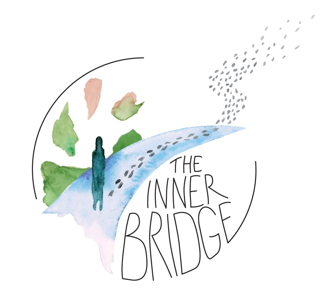


Archetypes are original patterns embedded in our psyches. Even though we can relate to almost every archetype, there is a group that represent your primary archetypes.
Understanding your archetypal patterns provides you with a clear map of your strengths and weaknesses and the motivations behind the choices you make. One of the main criteria to determine if an archetype is part of your psychological makeup is consistency. When a certain archetype consistently presents itself throughout your biography rather than appear occasionally, then you can identify it as one of your primary ones.
This is an example of the work I did with one of my primary archetypes.
I grew up in a completely unorthodox environment. My parents were rebels themselves, oftentimes breaking the rules of convention. My mother taught me the power of choice, encouraging me to think and act freely. They were both atypical, my father was an actor and my mother an ex-model who practiced yoga. They lived an unconventional life under the rule of Franco, the Spanish dictator, in a very traditional and narrow-minded country.
We were misfits, living out of the box, inspiring criticism and admiration. Sometimes I wished to be normal, to do what other kids were doing. I envied their stable lives and felt ashamed of being different. Only later, in my adolescence, did I realize the gift I had received from my parents. Thanks to my upbringing I developed a sense of empowerment and strong confidence in my own criteria.
My biography manifests my rebel side, every decision along the way has been informed by a strong need to be coherent with myself even if that meant not fitting in.
I decided to become a mother when I was 21. I wanted to start a family, to create a safe haven for myself and to channel strong motherly energy. It was difficult, going against the current can be a lonely experience; my peers were traveling and partying while I was cooking baby food and taking my son to the park. I chose alternative birthing, alternative education and alternative medicine to raise my children because I wanted to explore other avenues, more fulfilling and meaningful than conventional ones.
I was married after having our children, so the three of them attended the ceremony. My eldest was five and took pictures of the wedding. We booked the nuptial suite with extra beds to accommodate the whole family. We were the first ones to leave the party. I was breastfeeding and we were tired. My friends stayed on, dancing until dawn.
My professional life has been influenced by this archetype. My training is pretty eclectic. I always chose courses and studies that resonated with my interests and my approach to life rather than following the traditional path.
Authenticity and courage are the two main focus points when I work with my clients. I passionately seek the truth and I’m ready to cope with the discomfort that comes when I confront myself with my dark side. The realization of a new insight feels quite liberating and transformation and change make worthwhile the unpleasantness. This is the spirit I share with my clients when I accompany them on their journeys of self-discovery.
My rebel archetype makes me good at inquiring, examining situations and people and my own motives with honesty and objectivity and also gives me the courage to express my truth no matter what. With the rebel by my side, I dare to fight for what I believe in and confront situations when my integrity is at stake. Thanks to my rebel I rely on my capacity to understand and evaluate challenges and choose to remain aligned with my values.
The rebel in me also has a negative side; I tend to react passionately and blindly, rushing into decisions that I later regret. I need to discern when my fire might be destructive and how to use it constructively, choosing my words carefully to express my truth but not with the intention of hurting others.
My shadow rebel has taught humility and the negative impact that pride and stubbornness can have on my life when they get in the way. When I get stuck in my point of view and I lose perspective, my shadow rebel isolates me and creates animosity towards others.
A good sign that I’m experiencing the energy of this archetype in a constructive manner is when it helps me keep in touch with my truth and remain loyal to my values without having to demonize the other. At that moment, my strength comes from my conviction and my commitment towards myself rather than being focused on an external battle with an enemy. The focus and motivation stay inwardly.
The rebel reconnects me again and again with my authentic self. Every step I take in life follows my inner voice, which guides me on my path, showing me ways in which I can explore my uniqueness.
You must keep on doing your best, according to your own clearest understanding. You must long for freedom as the drowning man longs for air.
Paramahansa Yogananda